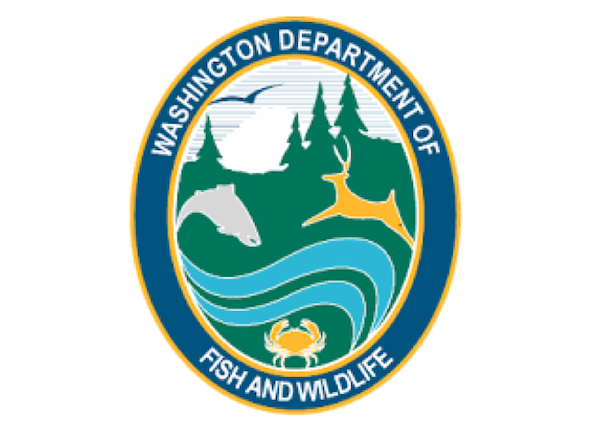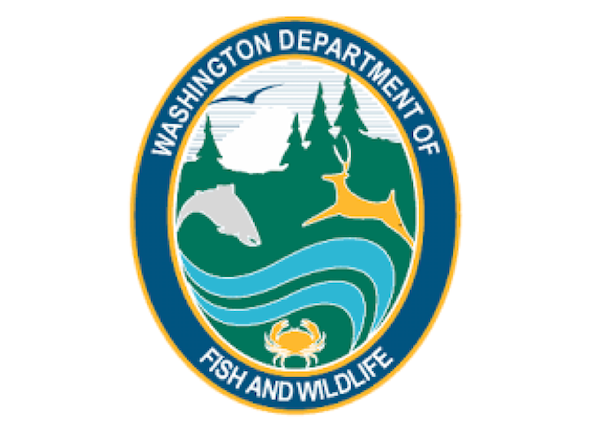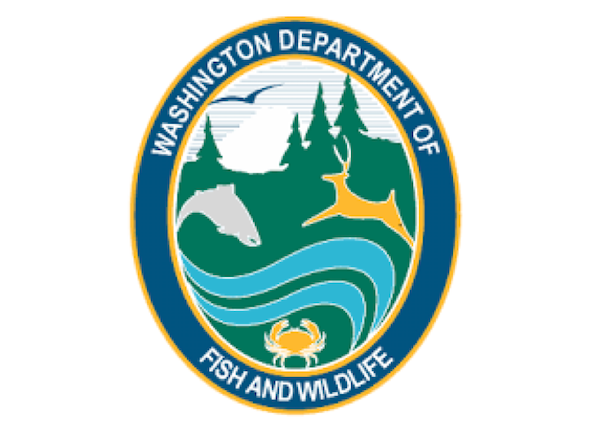From Sportfishing
Fish Report for 10-11-2023

WDFW approves four days of coastal razor clam digs beginning Oct. 14
10-11-2023
WA Department of Fish & Wildlife Staff
WDFW shellfish managers propose an alternative digging schedule for Copalis and Mocrocks beaches beginning in 2024
OLYMPIA – Washington Department of Fish and Wildlife (WDFW) shellfish managers confirmed today razor clam digging opportunities at Long Beach, Twin Harbors, Copalis, and Mocrocks beaches begin Oct. 14.
“After a successful first tide series of the season, we are excited to announce another round of digs for this weekend, and we’re very happy to get Mocrocks back into the mix,” said Bryce Blumenthal, a WDFW coastal shellfish biologist.
The optimal digging occurs between one and two hours before the listed time of low tide. The following digs during evening (p.m.) low tides will proceed as scheduled, after marine toxin results from the Washington Department of Health (WDOH) showed razor clams are safe to eat:
- Oct. 14, Saturday, 7:17 p.m.; 0.2 feet; Long Beach, Twin Harbors, Mocrocks
- Oct. 15, Sunday,7:52 p.m.; -0.1 feet; Long Beach, Twin Harbors, Copalis
- Oct. 16, Monday, 8:28 p.m.; -0.3 feet; Long Beach, Twin Harbors, Mocrocks
- Oct. 17, Tuesday, 9:06 p.m.; -0.4 feet; Long Beach, Twin Harbors, Copalis
- Oct. 18, Wednesday, 9:49 p.m.; -0.3 feet; Mocrocks
Marine toxin levels have been decreasing according to the WDOH guidelines. WDOH requires two test samples taken seven to 10 days apart, and domoic acid levels must fall under the guideline level before a beach can reopen for digging. Domoic acid, a natural toxin produced by certain types of marine algae, can be harmful or fatal if consumed in sufficient quantities. More information about domoic acid, as well as current levels at ocean beaches, can be found on WDFW's domoic acid webpage.
Final approval of marine toxin testing usually occurs about a week or less – sometimes two to three days – prior to the start of each digging series. Below are additional tentative dates:
- Oct. 27, Friday, 6:18 p.m.; -0.4 feet; Long Beach, Twin Harbors, Mocrocks
- Oct. 28, Saturday, 7:03 p.m.; -1.0 feet; Long Beach, Twin Harbors, Copalis
- Oct. 29, Sunday, 7:46 p.m.; -1.3 feet; Long Beach, Twin Harbors, Mocrocks
- Oct. 30, Monday, 8:29 p.m.; -1.3 feet; Long Beach, Twin Harbors, Copalis
- Oct. 31, Tuesday, 9:12 p.m.; -1.0 feet; Mocrocks
- Nov. 12, Sunday, 5:53 p.m.; -0.3 feet; Mocrocks
- Nov. 13, Monday, 6:30 p.m.; -0.7 feet; Long Beach, Twin Harbors, Copalis
- Nov. 14, Tuesday, 7:09 p.m.; -0.9 feet; Long Beach, Twin Harbors, Mocrocks
- Nov. 15, Wednesday, 7:51 p.m.; -0.9 feet; Long Beach, Twin Harbors, Copalis
- Nov. 16, Thursday, 8:37 p.m.; -0.8 feet; Long Beach, Twin Harbors, Mocrocks
- Nov. 17, Friday, 9:27 p.m.; -0.5 feet; Copalis
- Nov. 18, Saturday, 10:22 p.m.; -0.1 feet; Mocrocks
- Nov. 24, Friday, 4:18 p.m.; 0.0 feet; Long Beach, Twin Harbors, Copalis
- Nov. 25, Saturday, 5:05 p.m.; -0.7 feet; Long Beach, Twin Harbors, Mocrocks
- Nov. 26, Sunday, 5:49 p.m.; -1.2 feet; Long Beach, Twin Harbors, Copalis
- Nov. 27, Monday, 6:31 p.m.; -1.3 feet; Long Beach, Twin Harbors, Mocrocks
- Nov. 28, Tuesday, 7:12 p.m.; -1.2 feet; Long Beach, Twin Harbors, Copalis
- Nov. 29, Wednesday, 7:52 p.m.; -0.8 feet; Mocrocks
- Dec. 13, Wednesday, 6:55 p.m.; -1.3 feet; Long Beach, Twin Harbors, Mocrocks
- Dec. 14, Thursday, 7:39 p.m.; -1.3 feet; Long Beach, Twin Harbors, Copalis
- Dec. 15, Friday, 8:25 p.m.; -1.2 feet; Long Beach, Twin Harbors, Mocrocks
- Dec. 16, Saturday, 9:12 p.m.; -0.8 feet; Long Beach, Twin Harbors, Copalis
- Dec. 17, Sunday, 10:01 p.m.; -0.3 feet; Long Beach, Twin Harbors, Mocrocks
- Dec. 26, Tuesday, 6:18 p.m.; -0.9 feet; Long Beach, Twin Harbors, Copalis
- Dec. 27, Wednesday, 6:57 p.m.; -0.8 feet; Long Beach, Twin Harbors, Mocrocks
- Dec. 28, Thursday, 7:35 p.m.; -0.6 feet; Long Beach, Twin Harbors, Copalis
- Dec. 29, Friday, 8:11 p.m.; -0.3 feet; Long Beach, Twin Harbors, Mocrocks
On all open beaches, the daily limit is 15 clams per person. Each digger’s clams must be kept in a separate container, and all diggers must keep the first 15 clams they dig, regardless of size or condition.
“It's important that diggers keep the clams they dig to prevent wastage,” Blumenthal said. “It's not unusual to encounter some small clams, especially this early in the season.”
All diggers age 15 or older must have an applicable fishing license to harvest razor clams on any beach. Licenses can be purchased from WDFW’s licensing website, and from hundreds of license vendors around the state. WDFW recommends buying your license before visiting coastal beach communities.
WDFW shellfish managers are considering an alternative digging schedule for Copalis and Mocrocks beaches beginning in 2024. The proposed change would open each beach for multiple days rather than alternating openings between areas every other day. For example, during a four-day tide series, Mocrocks would be open Friday and Saturday and Copalis would be open Sunday and Monday. Proposed dates would provide consecutive open dates on each beach in a way that spreads digging opportunity evenly.
The approach to offering consecutive open days may reduce confusion as to which beach is open, create more digging opportunity when only one beach is available for harvest, allow for increased digging success due to beach familiarity, and reduce travel to and from open beaches. Public comment on the proposed change will be accepted until Nov. 15. The public may email their comments to razorclams@dfw.wa.gov.
The updated 2023-24 Razor Clam Management Plan is available on the WDFW’s website. You can view additional 2023-2024 razor clam information on the WDFW razor clam webpage.
The Washington Department of Fish and Wildlife works to preserve, protect, and perpetuate fish, wildlife and ecosystems while providing sustainable fish and wildlife recreational and commercial opportunities.
< Previous Report Next Report >
More Reports
Salmon fishery update for the Snake River
Snake River
10-10-2023
Action: Anglers must release wild (unclipped) adult Chinook in the Lyons Ferry Bubble Fishery. Maintain other previously announced salmon seasons. Species affected: Chinook...... Read More
WA Department of Fish & Wildlife Reports
for Friday, October 6th, 2023
• WDFW invites public to attend Oct. 11 virtual meeting on proposed 2024 recreational halibut season
Skagit River: Temporary closure scheduled for Skagit River from Highway 9 to Baker River
Cascade River: Cascade River opens seven days per week

Website Hosting and Design provided by TECK.net